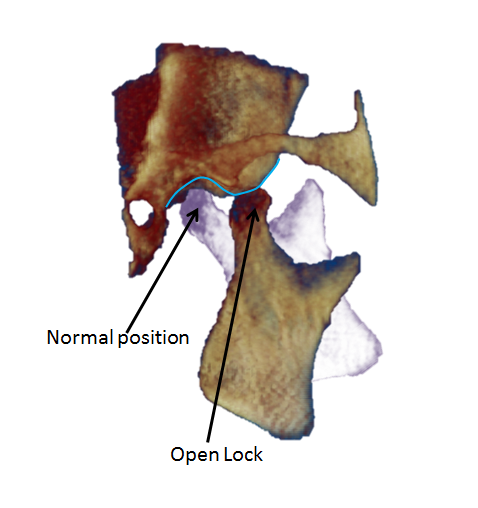This usually occurs without warning. A history of clicking or popping of the TMJ might be the case. This condition brings on a lot more fear to the person than the acute closed lock cases. Remaining calm is the key to resolving this slightly traumatic issue. Call your dentist and see if he or she is comfortable in performing the reduction procedure. If not, we are here to help. Locked openings can usually be reduced to close again within 15 minutes if one can remain calm. Long term care with treatment will help to prevent the recurrence of such a frightening experience. The cause of this condition rests in changes of the integrity of the ligaments that provide stability to the TMJ. With slow changes to the soft and hard tissue (the Glenoid fossa) holding the TMJ condyle becomes flatter than normal. The TMJ simply slips too far forward and gets stuck in front of a boney articular eminence so that the TMJ condyle cannot recoil backward to its normal resting place. This condition usually worsens over time. It could become painful and be accompanied with other symptoms such as vertigo and dizziness. Patients experiencing these symptoms visit their own medical doctors only to discover that nothing is wrong with their middle ears. Hence, TMD is a great imposter of other health problems.

